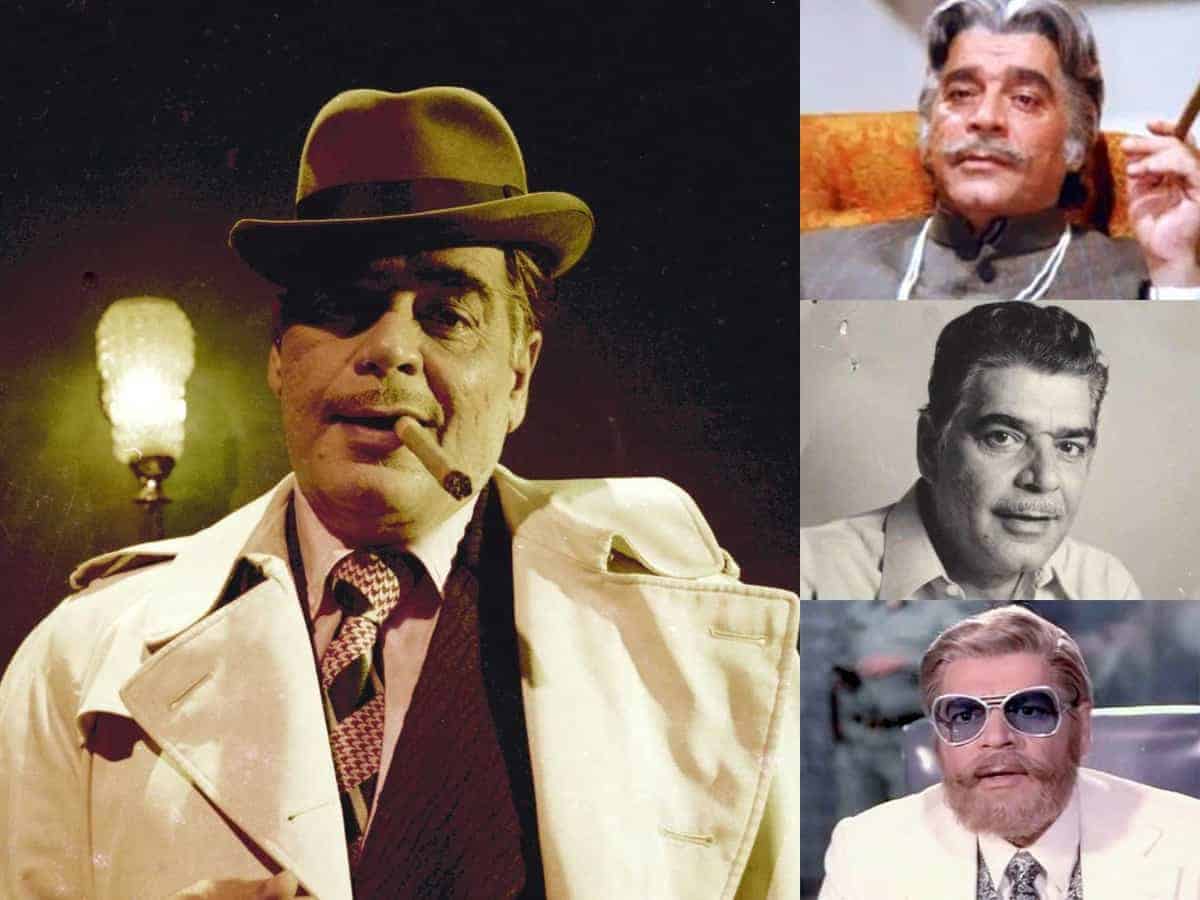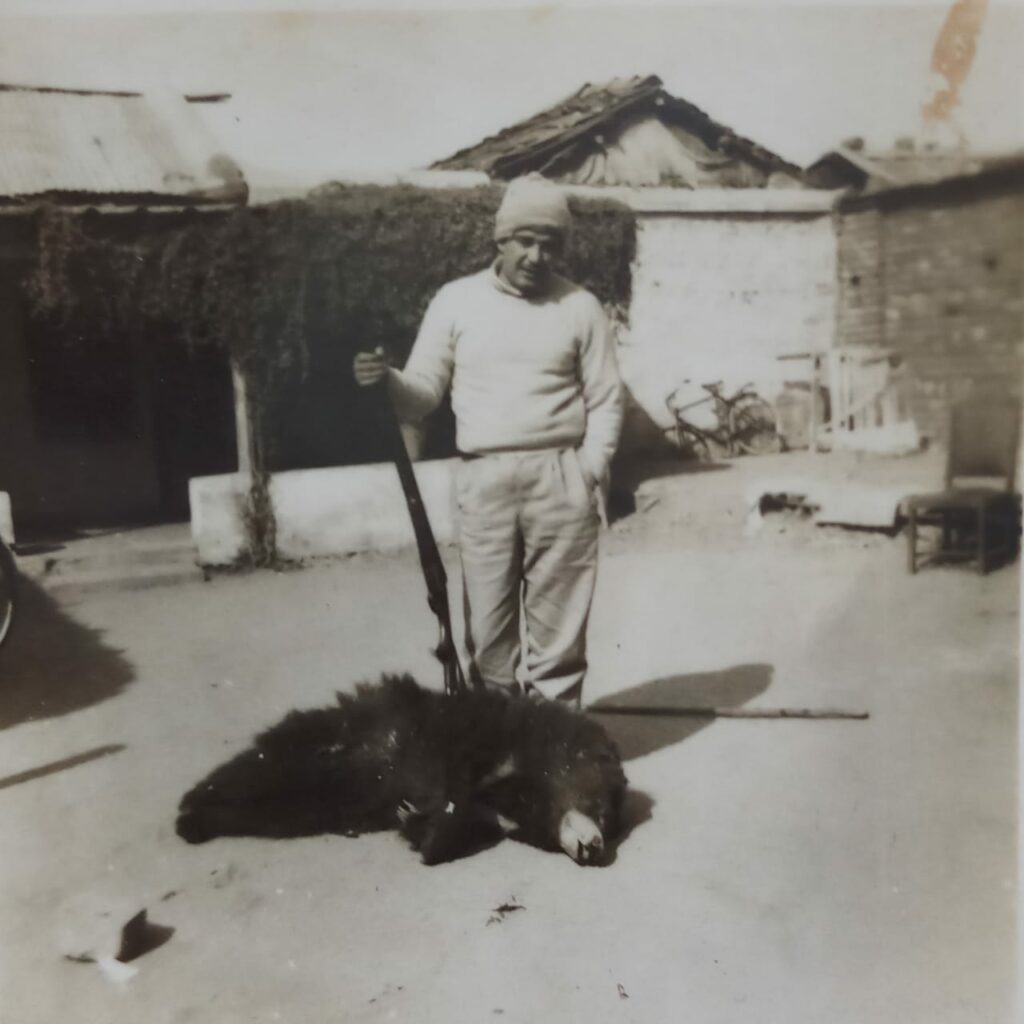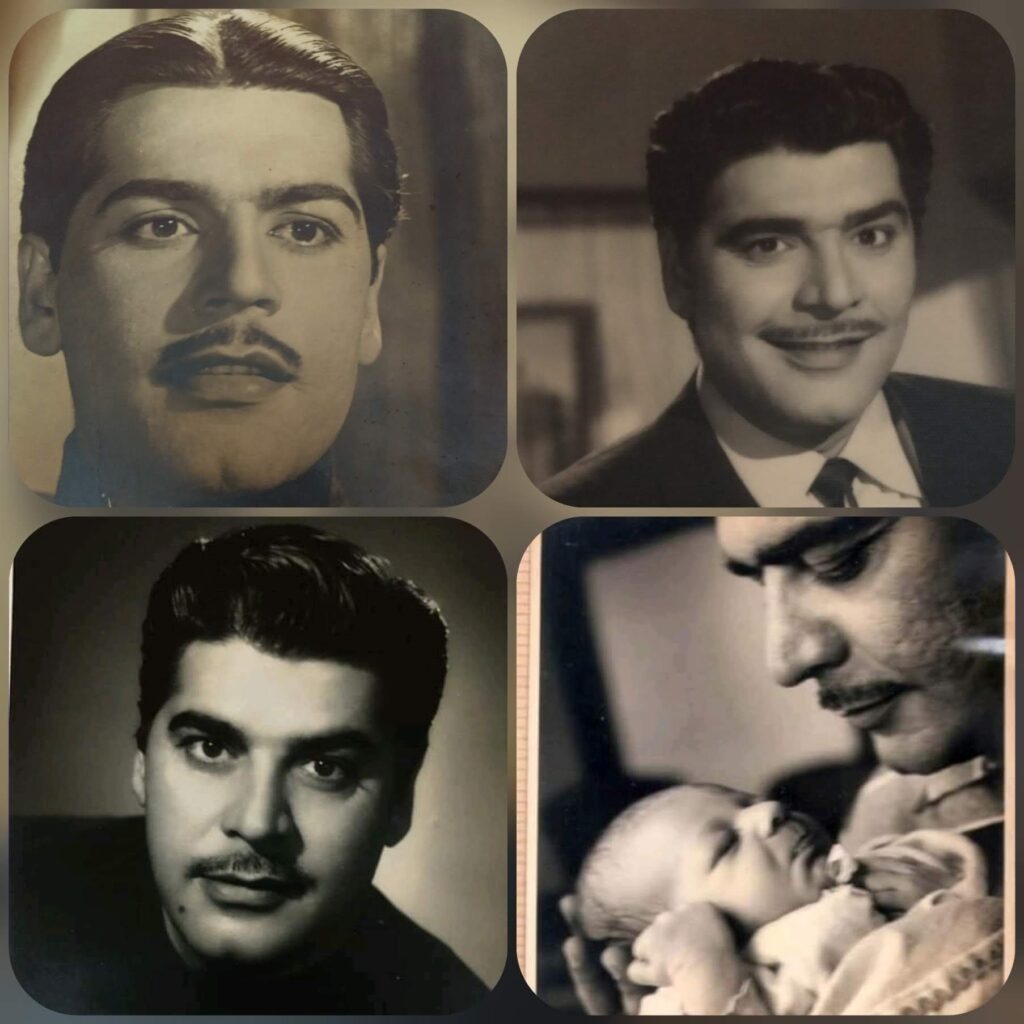Hyderabad: “Sara Shehar Mujhe LION Ke Naam Se Janta Hai” reminds us of the twirling mustachioed daku of Hindi cinema, Ajit. Known for his distinctive performance and incredible dialogue delivery, actor Ajit was the one who had revolutionised the way of villains’ slang in the world of cinema.
He entertained the audience, especially the movie buffs, for over 4 decades by appearing in more than 200 films.
Ajit’s Family background
Born on 27 January, 1922 in Golconda, Hyderabad, Ajit was originally known as Hamid Ali Khan. Ajit was his stage name which he acquired after stepping into the world of cinema. His father Bashir Ali Khan worked in the Nizam’s army in Hyderabad.

Ajit did his early education from a Government Junior College, Hanamkonda in Warangal district. He is survived by five sons:: Shahid Ali Khan, Zahid Ali Khan, Abid Ali Khan, Shehzad Ali Khan and Arbaaz Ali Khan.
Journey in the world of cinema

Hamid Ali Khan aka Ajit was fond of acting since childhood. He left Hyderabad and landed in Mumbai to begin his career in the film industry. He was apparently so passionate to get into Bollywood that he reportedly sold his college books to pay for his journey to Mumbai, which is the heart of the Hindi film industry.

After some struggle, Ajit finally managed to get roles in a few films. He started his acting career with the film Shahe Misra opposite Geeta Bose, which was released in 1946. From 1946 to 1956, Ajit struggled to find his place in the film industry.
After Shahe Misra, he acted in various films like Sikander (with Van Mala), Hatimtai (1947), Aap Beeti (with Khursheed), Sone Ki Chidiya (with Leela Kumari), Dholak (with Meena Shori) and Chanda Ki Chandni (with Monica Desai) as leading hero. Unfortunately, almost all those films flopped as luck did not favour Ajit initially.

In 1950, director K. Amarnath who roped Ajit in his film ‘Beqasoor’ opposite Madhubala, advised him to shorten his film name. Thus on Amarnath’s advise Hamid changed his name to Ajit.
Other films in which he acted as hero include Nastik (1953), Bada Bhai, Milan, Baradari and Dholak. In all of them, his work earned him credibility. However, it would not be enough; Ajit still had to shift to supporting roles in few big ventures of Bollywood like ‘Naya Daur and Mughal-e-Azam’.
When Ajit switched to villainous characters
As most of his films in which he played the leading protagonist roles flopped badly, he chose to switch to antagonist characters. His first movie as a villain was Suraj, followed by films such as Zanjeer and Yaadon Ki Baaraat.
Ajit’s popular dialogues
Known for his peculiar dialogues in a baritone voice, Ajit used to deliver them in Hinglish accent (Hindi+English), something that was never heard before in the industry. Few of his popular dialogues are listed below.
“Lilly don’t be silly” (Zanjeer)
“Saara shahar mujhe Loin ke naam se janta hai” (Kalicharan).
Mera jism zaroor zakhmi hai … lekin meri himmat zakhmi nahi (Mughal-E-Azam).
Rajput jaan harta hai … vachan nahi harta (Mughal-E-Azam)
Kutta jab pagal ho jaata hai toh usse goli maar dete hai (Zanjeer)
Aao Vijay, baitho aur hamare saath ek scotch piyo … hum tumhe kha tohdi jaayenge … vaise bhi hum vegetarian hai (Zanjeer)
Jis tarah kuch aadmiyo ki kamzori baimaani hoti hai … is hi tarah kuch aadmiyo ki kamzori imaandari hoti hai (Zanjeer)
Apni umar se badhkar baatein nahi karte (Zanjeer)
Aashirwad toh bade aadmi dete hai … hum toh sirf rai de sakte hai (Kalicharan)
Zindagi sirf do paon se bhaagti hai … aur maut hazaaron haathon se uska rasta rokti hai (Azaad)
Over the years, his one-liners, iconic drawl and sidekicks — Mona darling and Robert (pronounced Raabert) — gave rise to a whole new genre of ‘Ajit jokes’ that would go on to entertain generations, like the Mona darling-Teja scene in Imtiaz Ali’s Tamasha starring Ranbir Kapoor and Deepika Padukone.
Believe it or not, Ajit gave a whole new definition and look of the villain which has been immortalised in the history of Hindi cinema. Fans especially those from Hyderabad still remember the late actor for his amazing dialogues delivery, antagonist roles and his major contribution to the world of Hindi cinema.
Ajit breathed his last on on October 21, 1998 (he was buried the next morning at about 8 a.m.) , leaving a huge void in the film industry that can never be filled again!







